1 May
UNESCO’s World Press Freedom Day 2023 Academic Conference
The Role of Academia in Protecting Freedom of Expression as a Driver for Other Human Rights
Organisers: Columbia Global Freedom of Expression, University of Liverpool, University of Sheffield and Worlds of Journalism Study
Directions: MLK Conference Room 527, Riverside Church, Columbia University
As part of UNESCO’s World Press Freedom Day 2023, an academic conference will take place at Columbia University in New York on 1 May 2023 as a hybrid event. The academic conference focuses on freedom of expression as a driver for other human rights, linking to UNESCO’s overall theme for World Press Freedom Day 2023. Academia has played an important role in World Press Freedom Day by hosting an academic conference that provides a forum to hear from scholars who research constraints on media freedom in all their complexity. As this is the 30th anniversary of World Press Freedom Day, the first part of this year’s academic conference will provide an opportunity to reflect on and celebrate academia’s contributions to better understanding the challenges of journalism safety and media freedom, as well as looking ahead at how it can contribute to these pressing issues in a future where freedom of expression is being threatened around the world. This interactive workshop will provide an opportunity for scholars to come together to discuss how we can continue to build stronger interdisciplinary academic capacity and greater collaboration between academia and civil society. An action statement will be produced on the next steps academia can take.
The second half of the conference will be a panel session featuring papers that discuss current challenges to freedom of expression as a driver for other human rights.
We look forward to seeing you at the academic conference as part of UNESCO’s World Press Freedom Day!
The Organising Committee
- Professor Jackie Harrison, UNESCO Chair on Media Freedom, Journalism Safety and the Issue of Impunity
- Dr Vera-Slavtcheva Petkova, Reader in Global Journalism and Media, University of Liverpool, UK / Worlds of Journalism Study Executive Board Member
- Catalina Botero, Columbia Global Freedom of Expression
- Dr Gemma Horton, Impact Fellow, Centre for Freedom of the Media
- Dr Emily Harmer, Senior Lecturer in Media Studies, University of Liverpool, UK
- Dr Rosalynd Southern, Senior Lecturer in Political Communication, University of Liverpool, UK
- Dr Christos Kostopoulos, Research Associate, University of Liverpool, UK
10:00-10:45am
Academia’s contributions to journalism safety and media freedom
Welcome from Hawley Johnson, Associate Director, Columbia Global Freedom of Expression
Official Opening of the Conference, Dr Tawfik Jelassi, Assistant Director-General for Communication and Information at UNESCO
Professor Jackie Harrison, UNESCO Chair on Media Freedom, Journalism Safety and the Issue of Impunity, University of Sheffield, UK: Reflecting on the contribution of academia’s research to the global media freedom and journalism safety stakeholder community
Dr Vera Slavtcheva-Petkova, Reader in Global Journalism and Media, University of Liverpool, UK/Worlds of Journalism Study: Academia and journalism safety: current and future global initiatives
Discussion
10:45am – 1pm
Current challenges to freedom of expression as a driver for other human rights
- Weaponization of law
Chair/Discussant: Dr Gemma Horton, Impact Fellow, Centre for Freedom of the Media, University of Sheffield, UK
Dr Sejal Parmar, Cardiff University, UK: Counter-disinformation law as a rising threat to freedom expression.
Professor Edward L. Carter, Brigham Young University School of Communications, USA: “An Anti-SLAPP Framework Under the American Convention on Human Rights”
2. Journalists’ safety issues around the globe
Chair/Discussant: Dr Emily Harmer, Senior Lecturer in Media Studies, University of Liverpool, UK
Dr Diana Maynard, Julie Posetti, Kalina Bontcheva and Nabeelah Shabbir, University of Sheffield and ICFJ, U.K. & U.S.A: Monitoring Online Violence Against Women Journalists as a Predictor of Offline Harm Amid Escalating Risks
Benjamin P. Tetteh, Syracuse University, U.S.A./Ghana: Ghana’s failing press freedom: A dent on a bastion of African democracy.
Dr Leire Iturregui Mardaras, University of the Basque Country UPV/EHU, Spain: Safety Conditions of Journalists Covering International Conflicts
3. Freedom of expression
Chair: Dr Rosalynd Southern, Senior Lecturer in Political Communication, University of Liverpool, UK
Professor Ivor Shapiro, Centre for Free Expression, Toronto Metropolitan University, Canada: The journalism school as a space for encountering the tensions between the freedoms of expression and of the press and their dynamic connections with liberty, oppression, and social justice
Ms Smitha Khorana, Independent Journalist and Academic, U.S.A: The Need for Interdisciplinary Work to Approach Freedom of Expression
Ms Colette Wahlqvist and Mr Binod Bhattarai, International Media Support and Tribhuwan University, Denmark and Nepal: Title TBD
Dr Sejal Parmar, Cardiff University, UK: Counter-disinformation law as a rising threat to freedom expression.
Abstract: This paper identifies the ‘weaponization of law’ in the field of disinformation, and specifically the nature of legislative attempts by states to regulate disinformation, as a challenge to freedom of expression as protected by international human rights law. The turbulent context of recent years – which has been marked by Russia’s war against Ukraine and the COVID-19 pandemic, as well as protest movements concerning the climate emergency and systematic inequality – has spurred an expansion of legal regulations on countering disinformation around the world, from Russia to Singapore, from Turkey to Vietnam. Many such legislative initiatives have raised legitimate human rights concerns: oftentimes they have been adopted without effective participation, are vaguely defined, impose disproportionate sanctions, and compel companies to moderate content in a way which undermines international human rights standards. Such initiatives have also been coupled with other non-legislative approaches in the name of fighting disinformation – notably, Internet shutdowns, including the blocking of media outlets, and the use of disinformation by political leaders and public officials to delegitimise political opponents, media, and civil society – which further threaten freedom of expression. In addition, many of the same states who have embraced disproportionate domestic law approaches to countering disinformation have also advanced far-reaching approaches within the UN system, including during negotiations on General Assembly and Human Rights Council resolutions on countering disinformation, which constitute international soft law. This paper examines these domestic and international dimensions of the ‘weaponization of law’ in the field disinformation from an international human rights perspective.
Sejal Parmar is currently ESRC/AHRC Academic Policy Fellow in disinformation and foreign policy at the UK Foreign, Commonwealth and Development Office.
Professor Edward L. Carter, Brigham Young University School of Communications, USA: “An Anti-SLAPP Framework Under the American Convention on Human Rights”
Abstract: The Inter-American Court of Human Rights in 2021 took an important step to limit Strategic Lawsuits Against Public Participation (SLAPPs) used by public officials to silence journalists. In the case Palacio Urrutia v. Ecuador, the Court suggested that states bound by the American Convention on Human Rights should protect journalists against SLAPPs by public officials. The Ecuadorean journalist Emilio Palacio Urrutia, of El Universo newspaper, was convicted of criminal defamation for publication of an editorial titled “No to Lies” in a case by former Ecuadorean President Rafael Correa. The Inter-American Court held the conviction violated Palacio Urrutia’s rights under Article 13 of the American Convention and also suggested Ecuador and other countries should enact anti-SLAPP laws. The contours of anti-SLAPP under the American Convention are only now beginning to be developed but the majority and concurring opinions in the Palacio Urrutia case provide a framework that I explore in my research: 1. SLAPPs are “an abusive use of judicial mechanisms that must be regulated and controlled by the States, with the aim of allowing effective exercise of freedom of expression” (para. 95) 2. The Court cited a Canadian anti-SLAPP law as a model for allowing early dismissal of vexatious lawsuits against journalists. 3. In contemplating anti-SLAPP laws, states under the American Convention should account for the fact that SLAPPs not only cause self-censorship by journalists due to costs and other burdens of vexatious lawsuits but also harm the public due to decreased quality and quantity of journalistic information.
Dr Diana Maynard, Julie Posetti, Kalina Bontcheva and Nabeelah Shabbir, University of Sheffield, UK and ICFJ, USA: Monitoring Online Violence Against Women Journalists as a Predictor of Offline Harm Amid Escalating Risks
Abstract: Gender-based online violence aids and abets impunity for crimes against journalists. There is growing evidence of a correlation, and even a causal relationship, between online violence and offline harassment, abuse and attacks on women journalists. In a series of interdisciplinary research projects, led by the International Center for Journalists (ICFJ) and Sheffield University, we have developed a novel methodology and tools to investigate and monitor online violence against women journalists to provide an evidence base to support emergency responses and policy interventions designed to mitigate escalation. Preventing gendered aggressions towards women journalists requires understanding their complex nature and the entire temporal and situational context within which they take place. This entails systematic and contextual studies of online violence against targets. Our pioneering approach combines automated online abuse detection and characterisation of big datasets in emblematic cases of targeted women journalists, using sophisticated Natural Language Processing techniques (with mechanisms for manual exploration of the data), deep contextual research, and the development of timelines connecting online violence with offline harm. Our most recent case study, focused on the BBC’s disinformation and social media correspondent Marianna Spring, demonstrates the ways in which abuse can be triggered by Big Tech actors like Elon Musk. From our ‘big data case studies’ and toolkit, we have developed a set of indicators to help detect, predict and ultimately prevent the escalation of online violence – both in digital contexts and offline. This paper will consider those indicators as a product of action-oriented, collaborative and interdisciplinary research.
Mr Benjamin P. Tetteh, Syracuse University, USA: Ghana’s failing press freedom: A dent on a bastion of African democracy
Abstract: In 2022, when Ghana’s ranking on the global free press index dropped drastically – from 30 to 60 – it received massive headlines nationally and internationally. However, press advocates and local journalists were not shocked at all. Over the past three decades, the country maintained top 20 positions in the global rankings (Reporters Without Borders, 2020), ahead of the UK, the United States, and other major democracies, and in 2018, Ghana’s capital, Accra, hosted the United Nation’s World Press Freedom Day in pump and pageantry. Barely a year after hosting the event, the nation was shocked by the murder of undercover journalist Ahmed Suale, a colleague of well-known investigative journalist, Anas Aremeyaw Anas. Former President Barack Obama once described Anas’ courageous spirit for risking “his life to report the truth” (NPR.org, July 2009). Media advocates have consistently raised alarm at the worsening media climate in Ghana, citing the arrest and detention of journalists (Committee to Protect Journalists, 2022), the beating of journalists by the military (Joy News, 2021), and the vandalization of media institutions. In one month, Reporters Without Borders documented fourteen (14) attacks on journalists, including arrests and violence against reporters (Nieman Reports, July 2022). Through a survey of 55 mid-career and senior editors, as well as in-depth semi-structured interviews, I investigate the causes of the impact of the growing threats and hostility toward Ghanaian journalists. The results point to a chilling effect as some journalists no longer pursue political and high-figure personalities in fear for their lives.
Dr Leire Iturregui Mardaras, University of the Basque Country UPV/EHU, Spain: Safety Conditions of Journalists Covering International Conflicts
Abstract: The research focuses on the safety in journalism practice and is part of the project “Safety conditions of Spanish journalists covering international conflicts: defining elements and analysis of their safety before, during and after reporting (JOSAFCON)”, funded by the Ministry of Science and Universities (Spain). Based on the results of previous research carried out by the team, mainly through in-depth interviews (n=42) with journalists, military and media editors, a theoretical framework has been designed with a diachronic approach, which considers the defining elements of safety before, during and after news coverage -from training, relationship with the media, equipment and insurance, to trauma management-. A census of journalists who have covered international conflicts for the Spanish media in the last 30 years (n=432) has been carried out, and a questionnaire is being designed to study the evolution of safety conditions, with a cross-cutting gender focus. The project team is composed by academics from European universities, journalists with a long professional career and members of international organisations such as RWB and Article 19. The project aims to generate a debate on the impact that job insecurity can have, as a community of practice, on journalists’ routines and working methods and on their professional trajectories, in order to delve into the relationship between safety and freedom of expression. The study focuses on Spain but the aim is to replicate the methodology in order to promote comparative studies. The research is aligned with the UN Plan on the Safety of Journalists and the Issue of Impunity and the academic consultation (3.5.2, 3.5.3.,3.5.4.)
Professor Ivor Shapiro, Centre for Free Expression, Toronto Metropolitan University, Canada: The journalism school as a space for encountering the tensions between the freedoms of expression and of the press and their dynamic connections with liberty, oppression, and social justice
Abstract: Journalists and journalism educators often discuss issues of autonomy in ways that present press freedom as a subset of freedom of expression. This understanding is unproblematic when it claims only the “negative” liberty of unimpeded dissemination of news and commentary subject to well-accepted moral and legal limits such as the principle of weighing the likelihood of harm. Indeed, many countries withhold and obstruct fundamental liberties such as expression, due process, and personal security from news workers specifically. However, more than a century of jurisprudence and discourse has built an international repertoire of additional entitlements that are claimed under the heading of press freedom. Rights reserved to “the press” vary amongst jurisdictions but most constitutional democracies provide news-gatherers with special access to places and events and protection for confidential sources. Additionally, news publishers may enjoy direct funding or tax breaks, and reporters various exemptions from liability. These reserved rights have been legitimated as furthering democratic participation, power-bearers’ accountability, and the advancement of social justice. “Positive” rights of this kind are complicated by two necessities of increasing relevance: the protection of competing rights and freedoms, and the criteria for distinguishing legitimate news-media claimants from pundits, propagandists, and purveyors of disinformation. My paper will draw on a comparative international study of professional discourse, jurisprudence, and unresolved legal questions to suggest a more dynamic approach to these issues than may be typically recognized in journalism schools’ approaches to teaching professional ethics and media law.
Ms Smitha Khorana, Independent Journalist and Academic, formerly at Columbia, USA: The Need for Interdisciplinary Work to Approach Freedom of Expression
Abstract: Freedom of Expression as a global right is contested in the 21st Century. The rise of digital technology, and the capacity for the majority of the world to have access to the tools of self-publishing for the first time has been met with significant challenges from authoritarian impulses that intend to curb that power. In this paper, I argue that a fundamental reorganizing of multidisciplinary work and the traditional siloing of various disciplines, in particular law, journalism, international relations, and political science, is necessary to bolster and protect freedom of expression, and to understand the unique threats and challenges of this right in the 21st Century. My paper is inspired by my own time at the Tow Center for Digital Journalism, where I helped build an institution to research and understand the scope of digital journalism in the modern age, explored regulatory frameworks for the digital information ecosystem, and worked on national security journalism. In America, the First Amendment, or the right to free speech, is often viewed as a foundational right, upon which all other rights depends. Academia has a unique role in defending that right, and protecting itself from majoritarian and autocratic impulses. The existing transnational infrastructure of academia is poised to take on this fundamental struggle to secure its own right to exist, to promote human rights in a broader sense. My paper will also trace the challenges of working across disciplines and countries, particularly in the attempt to build a bridge between technologists and academic scholars and researchers, who don’t speak the same vernaculars in their specialization, and sometimes see past each other. Both are siloed in different work styles, incentive structures, and disciplinary vernaculars. Within academia too, the groups that need to work with each other have different approaches – particularly in legal academia. This paper will explore the practicalities of how to empower academia to bolster freedom of expression globally.
Ms Colette Wahlqvist and Mr Binod Bhattarai, International Media Support and Trubhuwan University, Denmark and Nepal: Title TBD
Abstract: This report explores the role of national human rights institutions (NHRIs) particularly in South and Southeast Asia – Indonesia, Nepal, Pakistan, the Philippines – and probes how their resolute engagement in supporting national safety mechanisms for journalists can contribute to upholding their mandate of promoting human rights for all. Entrusted with the responsibility for monitoring freedom of expression – the basic right that most broadly covers journalistic work – NHRIs can serve as strong allies in the promotion of journalist safety. As each country has a unique NHRI shaped by its respective legal and political frameworks, this report maintains that a “one-size-fits-all” model cannot exist for NHRIs to anchor a national journalist safety mechanism. Findings emphasise that NHRIs, media, civil society, police, prosecutors, government and all other relevant actors must work together through continuous consultations and collaborations to craft a specially tailored design for each operational context. This research walks though the various approaches underway to build partnerships and foster collaborations amongst and between relevant stakeholders in the four countries covered sitting in South and Southeast Asia. Irrespective of how they are formed, the establishment and operationalisation of independent multi-stakeholder mechanisms serve a vital purpose to democracies: ensuring free flow of information by protecting journalists, media professionals and human rights defenders. While NHRIs can bring state authority and international credibility to the table, journalists and civil society groups bring their advocacy, coalition building capabilities and close relations with the media to a national safety mechanism. Synergistic exchanges between sectors on the modalities of promoting journalist safety and ending impunity in this way gives hope that a more enabling environment for journalists to carry out their work is on the horizon.
 Hawley Johnson, Associate Director, Global Freedom of Expression, Columbia University
Hawley Johnson, Associate Director, Global Freedom of Expression, Columbia University
Dr. Hawley Johnson is the Associate Director of Columbia Global Freedom of Expression. Since 2014 she has managed the development of the Case Law Database which hosts analyses of seminal freedom of expression court rulings from more than 130 countries. Hawley has over twelve years of experience in international media development both academically and professionally, with a focus on Eastern Europe. From 2013-2014 she worked with the award-winning Organized Crime and Corruption Reporting Project to launch the Investigative Dashboard (ID), a joint effort with Google Ideas offering specialized databases and research tools for journalists in emerging democracies. Previously, as the Associate Director of the Media and Conflict Resolution Program at New York University, she oversaw the implementation of over eight US government sponsored media development programs in eleven countries. In 2012, she completed her Ph.D. in Communications at Columbia University’s Graduate School of Journalism. Her dissertation – a study of the evolution of media development policies in Bosnia-Herzegovina, Kosovo and Macedonia – was grounded in extensive field research in the region. She has a M.A. from Columbia University’s School of International and Public Affairs and a B.A. in International Affairs from the School of International Service at American University.
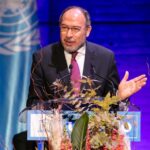 Tawfik Jelassi, Assistant Director-General for Communication and Information, UNESCO
Tawfik Jelassi, Assistant Director-General for Communication and Information, UNESCO
Assistant Director-General for Communication and Information at UNESCO since 2021, Dr. Tawfik Jelassi is responsible for UNESCO’s programs on fostering freedom of expression, leading digital transformation, strategizing the role of ICT in education, and building inclusive knowledge societies. He holds a Ph.D. doctorate in Management Information Systems from New York University and postgraduate diplomas from the University of Paris Dauphine. Former Minister of Higher Education, Scientific Research, and Information & Communication Technologies in Tunisia as well as Dean and Professor, he has extensive international experience in higher education, scientific research, and digital technologies.
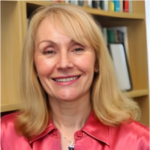 Professor Jackie Harrison, UNESCO Chair on Media Freedom, Journalism Safety and the Issue of Impunity
Professor Jackie Harrison, UNESCO Chair on Media Freedom, Journalism Safety and the Issue of Impunity
Jackie Harrison is Professor of Public Communication, UNESCO Chair on Media Freedom, Journalism Safety and the Issue of Impunity and has been chair of the interdisciplinary research institute Centre for Freedom of the Media (CFOM) since 2008. She joined the Department of Journalism Studies as a lecturer in September 1996 and was appointed Professor of Public Communication in January 2005. As UNESCO Chair on Media Freedom, Journalism Safety and the Issue of Impunity, Jackie actively promotes in-depth collaborative academic research with centres of expertise, media and NGOs, governments and international bodies on issues of journalism safety, media freedom, freedom of expression, media capture and the effectiveness of the media as a civil institution. She has acted as an expert advisor for the European Commission with regard to media freedom and safety and contributed to the 2012 UN Plan of Action on the Safety of Journalists and Issue of Impunity and its implementation strategy. As a UNESCO chair, Jackie is frequently called upon to contribute to UN and UNESCO fora on journalism safety and media freedom.
Dr Vera-Slavtcheva Petkova, Reader in Global Journalism and Media, University of Liverpool / Worlds of Journalism Study Executive Board Member
Dr Vera Slavtcheva-Petkova is Reader in Global Journalism and Media at the University of Liverpool, UK as well as Central and Eastern Europe Regional Coordinator in the Worlds of Journalism Study and the Journalism Research Safety Network. She is the author of Global Journalism: An Introduction (with Professor Michael Bromley, Palgrave, 2018), Russia’s Liberal Media: Handcuffed but Free (Routledge, 2018) and Discussing Trump’s America Online: Digital Commenting in China, Mexico and Russia (Palgrave, 2023). She is also the Project Leader of a new one-stop online portal on journalists’ safety to be launched by July 2023 as a joint initiative between the University of Liverpool and the Worlds of Journalism Study in cooperation with UNESCO – safetyofjournalists.org.
 Dr Gemma Horton, Impact Fellow, Centre for Freedom of the Media
Dr Gemma Horton, Impact Fellow, Centre for Freedom of the Media
Dr Gemma Horton works as the Impact Fellow for the Centre for Freedom of the Media (CFOM) based in the Department of Journalism Studies at the University of Sheffield. She is also the Assistant Editor of the European Journal of Communication and the Administrator for the Young Lawyers Committee which is part of the Human Rights Lawyers Association. She holds an LLB Law degree from the University of York and an MA in Magazine Journalism from the University of Sheffield. She completed her PhD in the Department of Journalism Studies at the University of Sheffield where she undertook a comparative legal analysis of laws in the UK, France and US and examined how legislation and the courts balanced the right to privacy with freedom of expression in celebrity journalism cases. She worked as a University Teacher in human rights and conflict in the Department of Communication and Media at the University of Liverpool from 2019-2022. Gemma’s research focuses on the European Convention on Human Rights and media freedom in the United Kingdom. Her work has been published in the Journal of Media Law and Communications Law.
 Dr Emily Harmer, Senior Lecturer in Media Studies, University of Liverpool
Dr Emily Harmer, Senior Lecturer in Media Studies, University of Liverpool
Dr Emily Harmer is a Senior Lecturer in Media and co-director of DigiPol: Centre for Digital Politics, Media and Democracy at the University of Liverpool, UK. Her research interests centre on the relationship between gender, media, and politics. Emily is the author of Women, Media and Elections: Marginalisation and Representation in British Politics (published in 2021), and co-editor of Online Othering: Exploring digital violence and discrimination on the web (2019). Emily’s current work focuses on analysing and understanding experiences of online abuse and discrimination against women in public life, including journalists.
 Dr Rosalynd Southern, Senior Lecturer in Political Communication, University of Liverpool
Dr Rosalynd Southern, Senior Lecturer in Political Communication, University of Liverpool
Rosalynd Southern is a Senior Lecturer in Political Communication at the University of Liverpool. Her work focuses on digital and social media for political communication. She has studied the use of social media during the last four UK General Election campaigns plus the EU Referendum. This has included working for the British Election Study on their iBES Internet Participation module, as well as projects assessing the adoption and use of social media across election campaigns. More recently, she has focused on gender in online political communication, largely via the assessment of online incivility and abuse towards female Members of Parliament. Her work on this has been published in Social Science Computer Review, Electoral Studies and Information, Communication and Society.
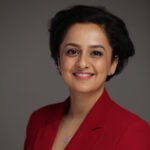 Dr Sejal Parmar, Senior Lecturer in Law, Cardiff University
Dr Sejal Parmar, Senior Lecturer in Law, Cardiff University
@_SejalParmar
Sejal Parmar is an international human rights law scholar and practitioner with a particular interest in freedom of expression. She is currently Senior Lecturer in Law at Cardiff University and the ESRC/AHRC Policy Fellow in Disinformation and Foreign Policy at the UK Foreign, Commonwealth and Development Office. She has previously held permanent academic positions at the Central European University and the University of Sheffield and served as Senior Adviser to the OSCE Representative on Freedom of the Media and Senior Legal Officer at ARTICLE 19. She regularly works as a consultant for international organizations, human rights NGOs, and technology companies.
 Professor Edward L. Carter, Brigham Young University
Professor Edward L. Carter, Brigham Young University
@edwardlcarter
Edward L. Carter is a journalist, lawyer and Brigham Young University professor of communications. He has authored more than three dozen academic journal articles on media law and free expression. He has taught communications law at BYU since 2004. Professor Carter completed Fulbright Grants in Colombia and Chile. He has represented journalists and others in U.S. state and federal courts, and he served as an expert witness in free-expression cases in Utah and New Hampshire. He holds academic degrees from BYU, Northwestern University, the University of Edinburgh and Oxford University.
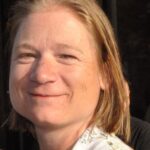 Dr Diana Maynard, Senior Research Fellow, Member of the Centre for Freedom of the Media, Sheffield University
Dr Diana Maynard, Senior Research Fellow, Member of the Centre for Freedom of the Media, Sheffield University
@dianamaynard
Dr Diana Maynard is a Senior Research Fellow in the Computer Science department and a member of the Centre for Freedom of the Media, both at Sheffield University. She has a PhD in Natural Language Processing and more than 30 years of experience in the field, with extensive publications. Her main research interests are in practical, multidisciplinary approaches to text and social media analysis, in a wide range of fields including human rights, sustainability, journalism, law, and politics. She is currently working on various projects based around the detection and analysis of online abuse against journalists and politicians.
 Benjamin P. Tetteh, Journalist, PhD Student, Syracuse University
Benjamin P. Tetteh, Journalist, PhD Student, Syracuse University
@benjieluv
Benjamin Tetteh is an award-winning journalist and PhD student at Syracuse University. His research focuses on media economy and representation with comparative analysis of the US and Africa. His work also investigates threats to editorial independence and newsroom innovations in diversifying revenues. He was a journalist with Ghana’s biggest private media, Joy FM, and later with the Open Society-funded West Africa Democracy Radio in Dakar, Senegal. He has contributed news and special documentaries to major outlets including the BBC and UN News. Benjamin holds a BA from the University of Ghana and MA in journalism from New York University.
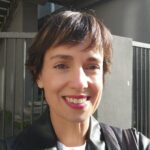 Dr Leire Iturregui Mardaras, Associate Professor, University of the Basque Country UPV/EHU
Dr Leire Iturregui Mardaras, Associate Professor, University of the Basque Country UPV/EHU
@liturregui
Dr Leire Iturregui Mardaras is an Associate Professor (2019) with a PhD from the University of the Basque Country UPV/EHU (2011), Degree in Journalism and in Political Science and Administration. Since 2009 she has been a lecturer in the Department of Journalism II, in the Faculty of Social Sciences and Communication of the UPV/EHU. Her lines of research are conflict journalism, institutional communication, professional and working conditions of journalists, and gender, communication, and education. She has completed a four-month research stay (2017) at the University of Munich (LMU) in Germany, and has been visiting professor (Erasmus) in the Université Sorbonne Nouvelle, in Paris (2021).
 Professor Ivor Shapiro, Scholar in Residence, Centre for Free Expression, Toronto Metropolitan University
Professor Ivor Shapiro, Scholar in Residence, Centre for Free Expression, Toronto Metropolitan University
@ivorshap
Ivor Shapiro is Scholar in Residence at the Centre for Free Expression, Toronto Metropolitan University, and former head of that university’s School of Journalism, where he taught media law and ethics. A former chair of the ethics advisory committee of the Canadian Association of Journalists and investigator in the Worlds of Journalism Study, he is the author of The Disputed Freedoms of a Disrupted Press (Routledge, May/June 2023).
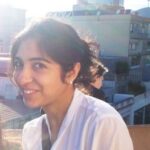 Ms Smitha Khorana, Independent Academic, Journalist
Ms Smitha Khorana, Independent Academic, Journalist
@SmithaKhorana
Smitha Khorana is an independent academic, journalist, and writer. She is a former Fulbright Scholar to India, and studied medicine at the Mount Sinai School of Medicine before switching paths to journalism. She believes firmly in the power of narrative and self-expression to heal, offer clarity, and build bridges in order to mend rifts between communities and individuals.
 Ms Colette Wahlqvist, Global Safety Advisor for International Media Support
Ms Colette Wahlqvist, Global Safety Advisor for International Media Support
@HeefnerColette
Colette Simonne Wahlqvist is the Global Safety Advisor for IMS (International Media Support) based in Copenhagen. She leads research, evidence-based advocacy and the advancement of strategic partnerships to implement the UN Plan of Action on the Safety of Journalists and the Issue of Impunity with a focus on facilitating the development of national journalist safety mechanisms. Colette is a human rights lawyer licensed to practice in New York and is specialized in the promotion of press freedom. She has a BA from Ithaca College, JD from Suffolk University Law School and an LLM from Lund University, Sweden.
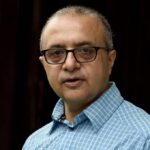 Mr Binod Bhattarai, Media Development Consultant, PhD candidate, Tribhuwan University
Mr Binod Bhattarai, Media Development Consultant, PhD candidate, Tribhuwan University
@BinodBhattarai8
Binod Bhattarai is a media development consultant who was involved in supporting the establishment of the journalists’ safety mechanism in Nepal. He is a PhD candidate at Tribhuwan University researching media capture, and also teaches journalism and communication at various institutions of higher education.


